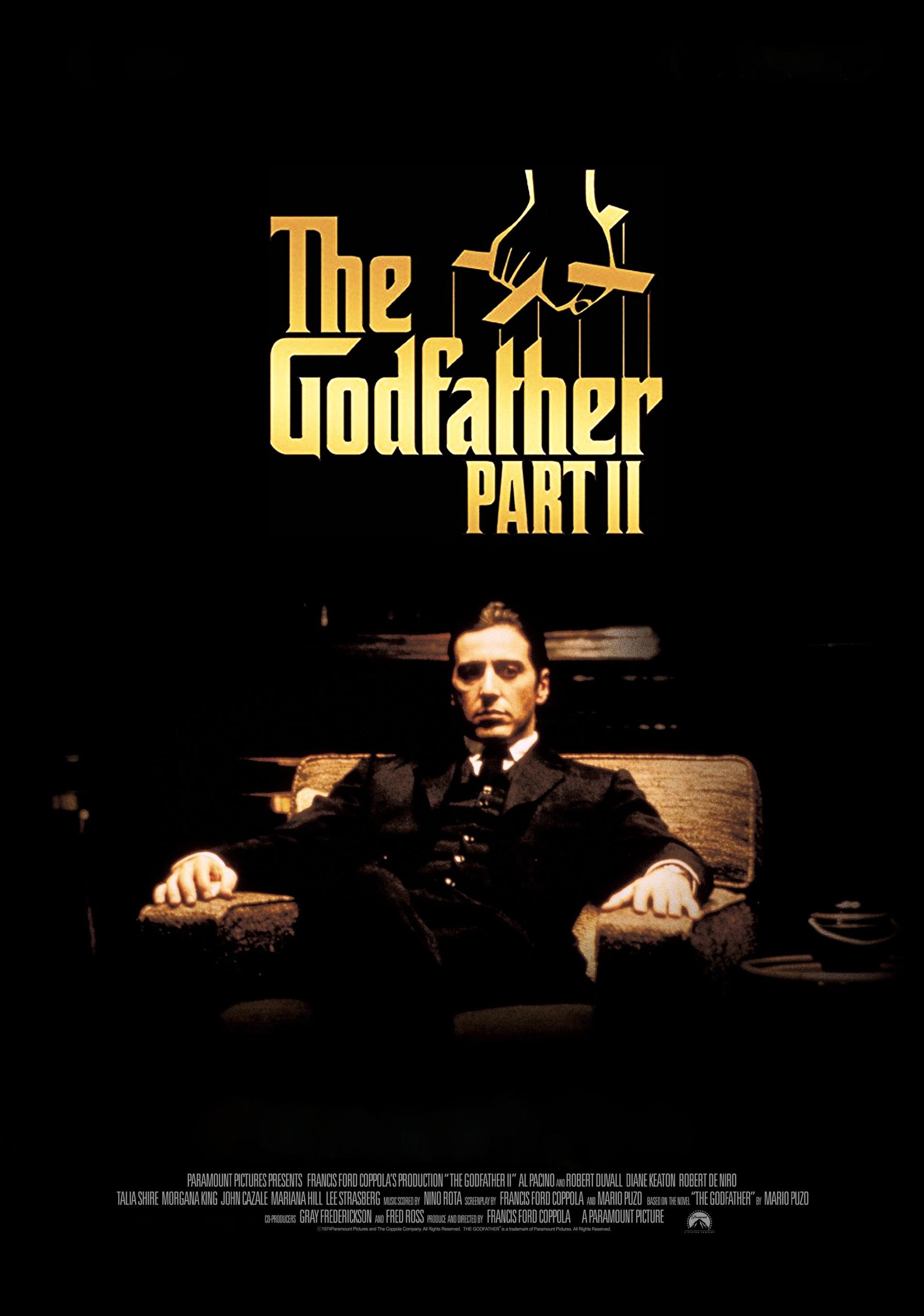The Godfather Part II
by Francis Ford Coppola · 1974 ·Historically, I’ve preferred this movie because the plot felt more digestible, and I especially liked the backstory. What I didn’t know before reading the book is that the majority of this plot is actually not from the original text, besides Vito Corleone’s backstory.
The backstory portion of the movie is so, so well done. Robert De Niro is just magnificent in his role as a young Vito. That whole subplot is the best-written material in the film, which makes sense since it’s taken directly from the book.
However, the ending, without giving away too many spoilers, is actually very similar to the ending of the first. Except in this case, it feels less triumphant and much colder.
Historically, I’ve preferred this movie because the plot felt more digestible, and I especially liked the backstory. What I didn’t know before reading the book is that the majority of this plot is actually not from the original text, besides Vito Corleone’s backstory.
The backstory portion of the movie is so, so well done. Robert De Niro is just magnificent in his role as a young Vito. That whole subplot is the best-written material in the film, which makes sense since it’s taken directly from the book.
However, the ending, without giving away too many spoilers, is actually very similar to the ending of the first. Except in this case, it feels less triumphant and much colder.
This is intentional, as this film, much like the first (perhaps even more so), is supposed to be a cautionary tale about the decaying morals of the mafia. The gradual shift in Michael Corleone’s life, extending from the transition we saw in the first movie, is displayed extremely well. It highlights the stress and backstabbing that come with the life of organized crime, and we can clearly see the effect it has on Michael and his personal life.
While parallels can be drawn between Michael and Vito, the backstory in this movie shows how they are fundamentally different. Vito got into crime out of necessity, using his power to protect those around him. A key observation Vito makes about Fanucci is that he used his power to prey on other Italians rather than protect them. While Vito was cunning, his moves were driven by survival. Michael, who initially didn’t want to get involved, was also pushed into crime out of necessity, like Vito. In contrast, Michael remained in the business due to a hunger for power, and I would argue he becomes colder and more ruthless than Vito.
Of course, this is partly due to circumstance. Michael took over the family during a difficult time, in the midst of a war with multiple families. But in the second movie, this war is over, and Michael shifts his focus from protecting his local community to expanding his empire.
It’s hard to choose between Parts I and II; both are phenomenal films. For now, I prefer the original. While my opinion may change, after reading The Godfather, the original remains triumphant.
